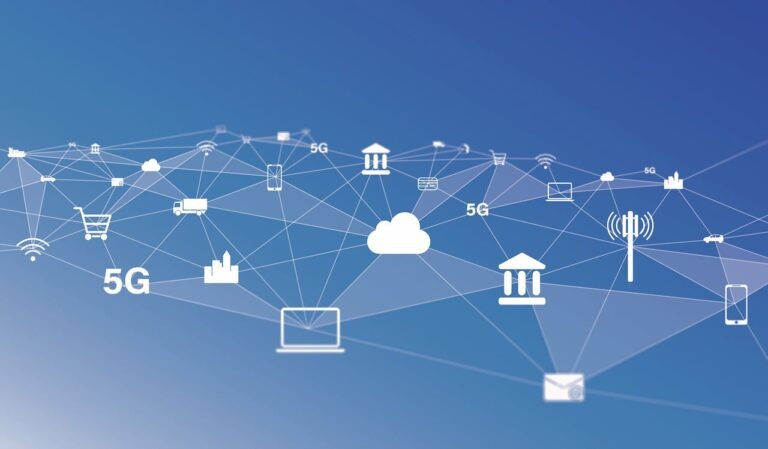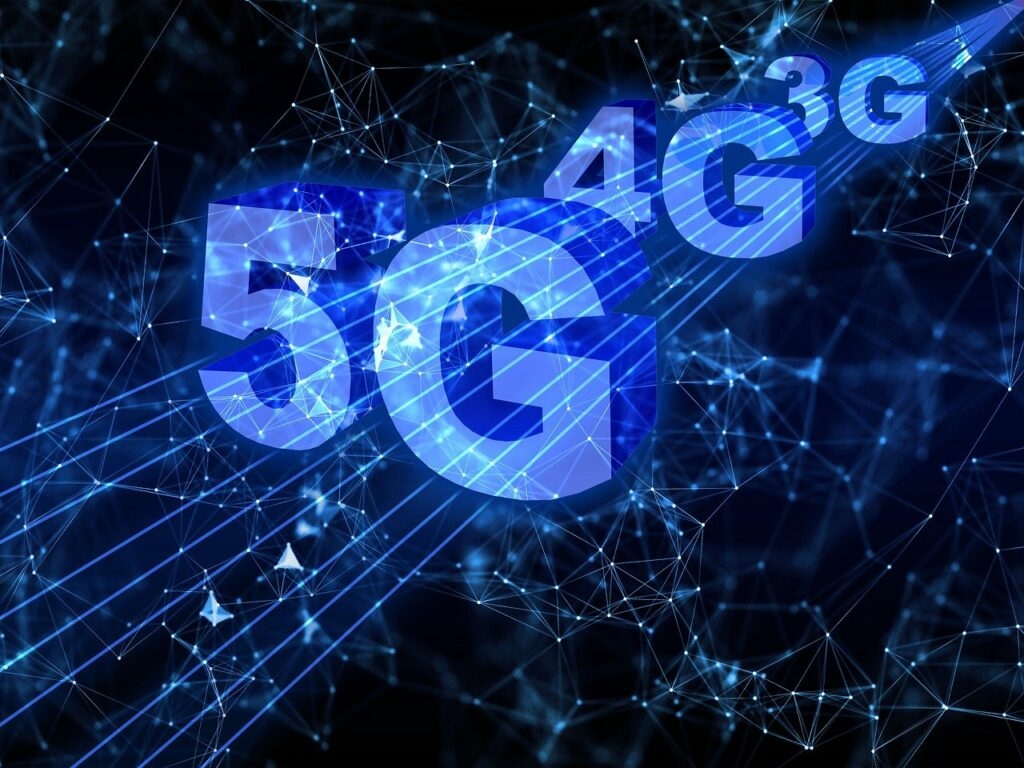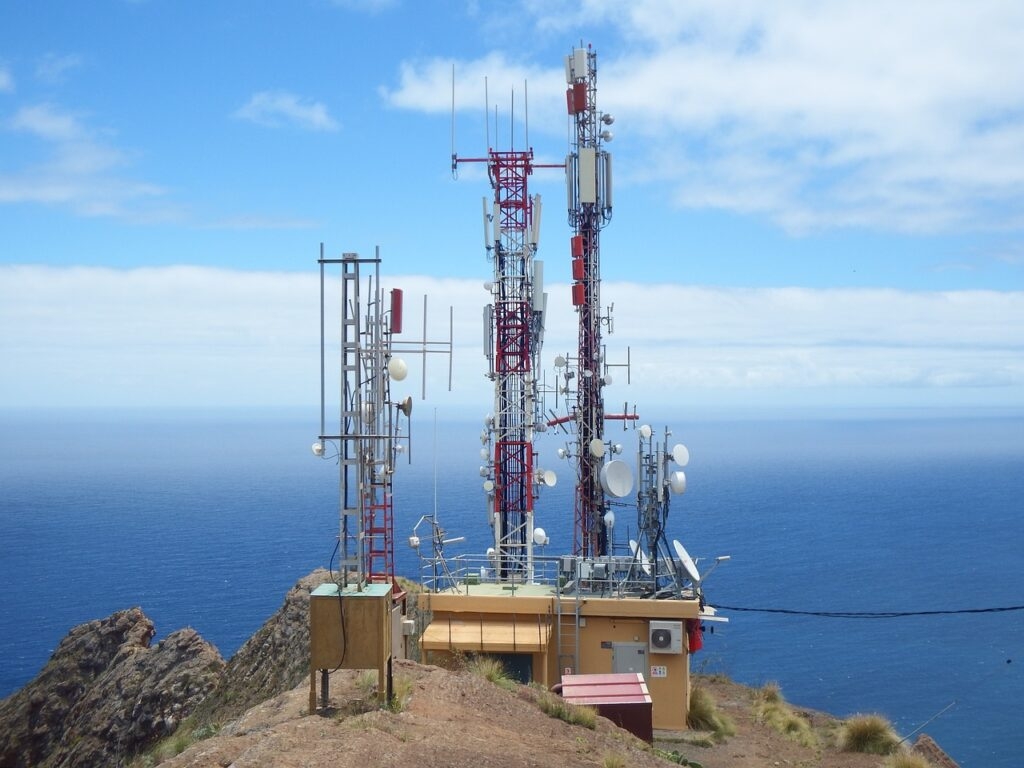
As the digital landscape evolves, the fifth generation of mobile networks, commonly known as 5G, emerges as a pivotal force in propelling technological advancement and enhancing energy efficiency.
This leap forward in mobile communications is not just about faster internet speeds; it represents a monumental shift in how devices connect and communicate, laying the groundwork for future innovations across various sectors.

The Revolutionary Speed and Capabilities of 5G
Unprecedented Speeds
Imagine downloading a high-definition film in mere seconds or streaming live sports with no perceptible delay.
With 5G, these scenarios become a reality, thanks to its capability to deliver speeds up to 10 gigabits per second (Gbps).
This is a quantum leap from the capabilities of its predecessor, 4G LTE, marking a new era of internet speed and reliability.
Enhanced Specifications for Modern Needs
5G technology stands out not only for its speed but also for its remarkable specifications. It boasts data rates reaching 10Gbps, latency reduced to 1 millisecond, and the capacity to support a significantly higher number of connected devices per unit area than 4G LTE.
These enhancements make 5G the backbone of modern telecommunications, supporting everything from high-speed internet access to the Internet of Things (IoT) applications requiring instantaneous response times.
Diverse Use Cases Enabled by 5G
The breadth of applications 5G enables is vast, from fixed wireless access, providing high-speed internet to homes and businesses, to enhanced mobile broadband for richer and more immersive media consumption.
Furthermore, it unlocks the potential for massive IoT, connecting billions of devices seamlessly, and ultra-low-latency communications critical for autonomous vehicles and remote surgery. These use cases demonstrate 5G’s role as a cornerstone technology for the future.
Global Rollout and Adoption Rates
The global adoption of 5G is accelerating, with 1.1 billion subscriptions recorded as of June 2023. Projections indicate this number will soar to 2 billion by 2025, reflecting the rapid expansion and uptake of 5G networks worldwide.
This widespread adoption underscores the demand for high-speed, reliable connectivity and the trust in 5G to deliver it.
Leading Countries in 5G Availability
Leading the charge in 5G availability are South Korea and Puerto Rico, with the United States also making significant strides.
These nations exemplify the global effort to deploy 5G, showcasing its transformative potential in enhancing connectivity and fostering technological innovations.

5G’s Contribution to Energy Efficiency
Comparison with Previous Generations
A pivotal aspect of 5G is its superior energy efficiency. Studies, including one by Nokia and Telefonica, have shown that 5G networks can achieve up to 90% greater efficiency per traffic unit than their 4G counterparts.
This efficiency is crucial for sustainable development, aligning with global efforts to reduce energy consumption and carbon emissions.
Optimized Design for Efficiency
5G networks achieve this remarkable efficiency through an optimized design that incorporates energy-saving mechanisms at both hardware and software levels.
Features like small cell deployments, power-saving algorithms, and innovative architecture and protocols play a significant role in this achievement. These design choices ensure that 5G not only meets the demands of modern connectivity but does so sustainably.
Technological Advancements in 5G
Among the technological advancements propelling 5G’s efficiency is the use of Massive Multiple-Input Multiple-Output (MIMO) antennas.
These antennas increase throughput dramatically while concurrently decreasing electricity consumption for each bit of data transmitted.
Such innovations underline the role of 5G in pushing the boundaries of what is possible in telecommunications, both in terms of performance and sustainability.
Advanced Energy-Saving Modes
5G also introduces advanced operational modes that conserve energy. These “sleep” modes allow devices and network components to power down during periods of inactivity without compromising network integrity or responsiveness.
This capability represents a significant stride in reducing the energy footprint of mobile networks.

The Role of 5G in Future Technological Developments
Facilitating Innovations Across Industries
The advent of 5G is set to revolutionize industries by enabling unprecedented levels of connectivity and data exchange.
In the automotive sector, it paves the way for fully autonomous vehicles, while in healthcare, it facilitates remote diagnostics and treatments, breaking down geographical barriers to medical services.
The agility and speed of 5G are vital in realizing these advancements, offering a glimpse into a future where technology creates more inclusive and efficient services.
Enhancing Smart Cities and IoT
Urban development stands on the cusp of transformation with 5G, as it enables smarter, more connected cities.
From traffic management systems that reduce congestion and emissions to public safety solutions that use real-time data for quicker responses, 5G is at the heart of these innovations.
Similarly, its capacity to support a massive network of IoT devices without latency issues makes it indispensable for the development of smart, efficient, and responsive urban environments.
Supporting Sustainable and Green Technologies
A crucial aspect of 5G’s role in future development is its contribution to sustainability. By enabling 5G sustainability through energy-efficient network design and operation, the technology supports the transition towards greener, more sustainable telecommunications infrastructures.
This commitment to reducing the carbon footprint and enhancing energy efficiency is essential in the broader context of climate change mitigation and sustainable development goals.
Impact on Other Fields: A Broader Perspective
The influence of 5G extends beyond the obvious sectors, potentially impacting a wide range of activities, including sports, entertainment, and even betting markets.
For instance, the precision and speed of 5G could enhance real-time data analytics, offering new insights into performance metrics and strategies in sports.
Such advancements could, in turn, influence betting markets by providing more accurate, up-to-the-minute data, as seen in the high win percentage of athletes like Lewis Hamilton in F1 racing.
This example underscores the broad potential of 5G to reshape various facets of society and the economy, highlighting its role as a key driver of innovation and efficiency across the board.
Directly in Your Inbox









